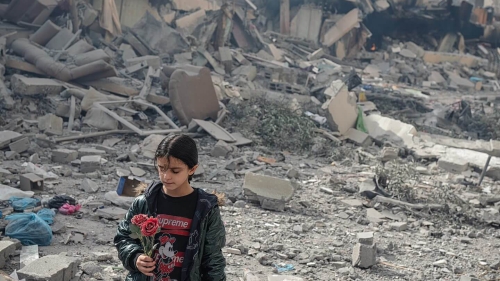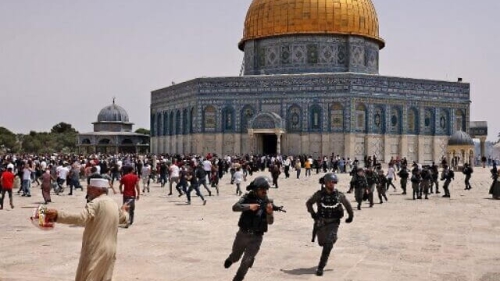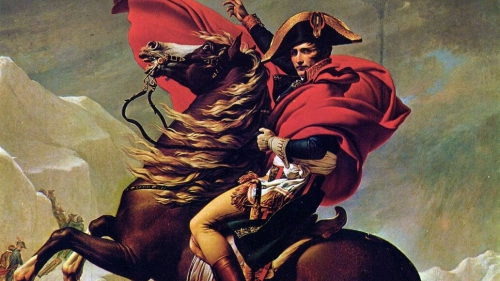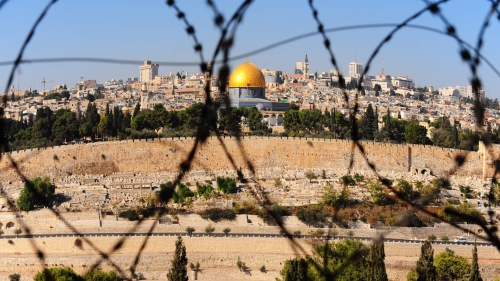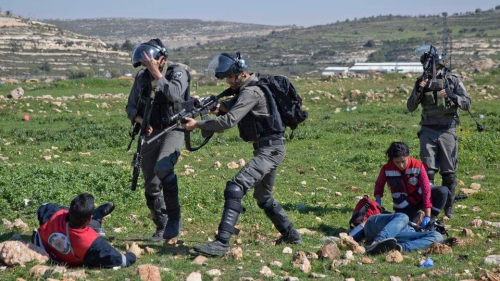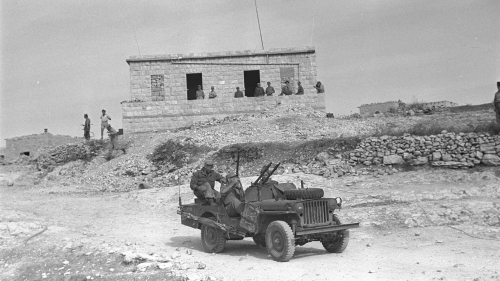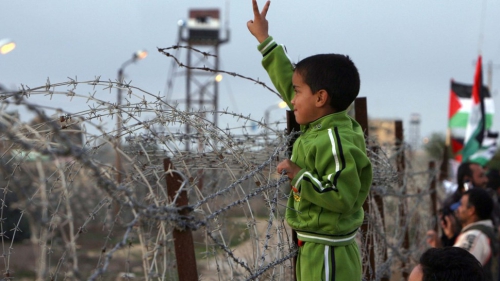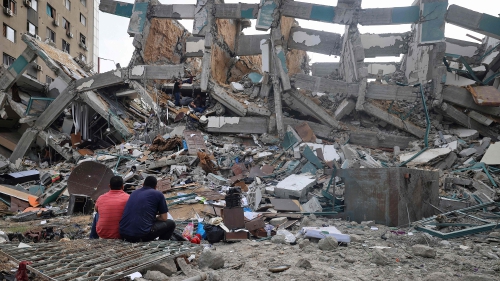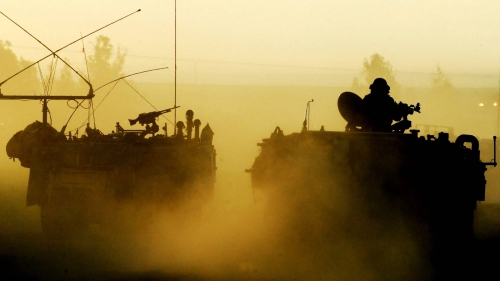Revisiting the Crusades
On November 26 in the year 1095, Pope Urban II delivered a speech in Clermont, France that has had a lasting impact on the Middle East. According to noted Arab Christian historian Philip K. Hitti in his book History of the Arabs, the Pope's call to "enter upon the road to the Holy Sepulchre, wrest it from the wicked race and subject it" was one of the most effective speeches ever given. Powerful indeed, imagine mobilizing thousands of volunteers to leave behind everything and to trek across the European continent to "liberate" Jerusalem. That is exactly what happened.
By the spring of 1097, more than 150,000 men gathered in Constantinople and set out on the first of a series of battles in the name of Jesus Christ. The bloodthirsty warriors have been portrayed for too long as chivalrous knights in shining armor coming to save Jerusalem from the "infidels." Wearing their trademark cross as a badge of honor -- hence the name Crusaders -- they left a trail of death and destruction. Not all were fighting for Christ, but many were; and his name was abused by the Western Church, which organized the expeditions.
On June 7, 1099, about 40,000 Crusaders reached the outskirts of Jerusalem and laid siege to the city. On July 15th the city was stormed and a frenzy of killing commenced. According to Hitti, the Crusaders "perpetrated an indiscriminate massacre involving all ages and both sexes." According to an article in the National Post, the Crusaders "killed unarmed non-combatants at a rate that would not be matched until the Nazi Einsatzgruppen, mobile killing units that operated in the Soviet Union in the Second World War." The article also quotes a witness, identified as Fulcher of Charters, who wrote of the massacre, "If you had been there you would have seen our feet covered to our ankles with the blood of the slain."
On July 15, 1999, which marks the 900-year anniversary of the date the Crusaders stormed Jerusalem, approximately 2000 Christians are expected to walk into Jerusalem. But instead of walking in with a sword in one hand and the cross in the other, they will enter the city with a message of apology and reconciliation. The marchers are to be met by representatives from Israel, the Palestinian Authority, as well as the Muslim, Jewish and Eastern Orthodox communities, including the Grand Mufti of Al-Aqsa mosque. According to organizers of this Reconciliation Walk, the aim is "to ask and pray for reconciliation and forgiveness, and clean the historically bad image of Christianity in a spirit of repentance." The apology reads in part:
Nine hundred years ago, our forefathers carried the name of Jesus Christ in battle across the Middle East. Fuelled by fear, greed and hatred, they betrayed the name of Christ by conducting themselves in a manner contrary to His wishes and character. The Crusaders lifted the banner of the Cross above your people. By this act, they corrupted its true meaning of reconciliation, forgiveness and selfless love.
On the anniversary of the first Crusade, we also carry the name of Christ. We wish to retrace the footsteps of the Crusaders in apology for their deeds and in demonstration of the true meaning of the Cross. We deeply regret the atrocities committed in the name of Christ by our predecessors. We renounce greed, hatred and fear, and condemn all violence done in the name of Jesus Christ.
Where they were motivated by hatred and prejudice, we offer love and brotherhood.
Unfortunately, this commendable initiative has not attracted the support, publicity and importance it deserves from many quarters. But what is most shameful is the fact that the Vatican, which started the Crusades, has not publicly or officially supported the initiative. Mike Neibur, a coordinator of the event, told Toronto's Globe and Mail that there is "privately expressed support from the Vatican." However, according to Neibur, because it was a Pope that started the Crusades, the Vatican can't officially offer its support. But such private apologies do nothing for the people of the Middle East who continue to feel the legacy of the crusader mentality.
Why is it that to this day the official church hierarchy cannot take responsibility for these horrendous crimes against Muslims, Jews and Eastern Christians? The action of the Vatican is no different from the evangelical Christians who disown the Crusades as baggage from pre-Reformation Christian history.
The Church would do a great service to humanity by accepting responsibility, apologizing and setting the record strait on this shameful chapter of its history. The organizers of the Reconciliation Walk have paved the way for the Vatican to do exactly this.
In this day and age when secular values are overtaking traditional values that are shared across religious lines, an apology would go a long way in removing the lingering distrust between Christians and Muslims and to facilitate better cooperation on issues of common interest.
Faisal Kutty is Toronto lawyer and writer and is also a columnist for the Washington Report On Middle East Affairs.






